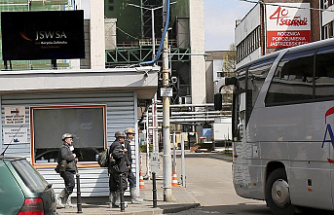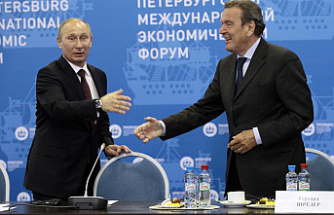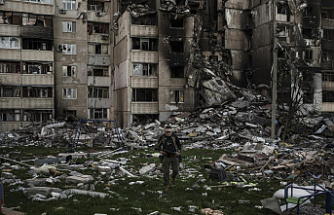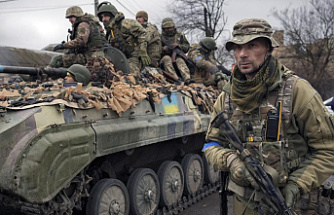According to two sources familiar with the discussions, the Biden administration is working to establish a communication backchannel to the Russian military in order to avoid an accidental clash between U.S. forces and those of the Russian army at the Ukrainian border. This comes as Moscow prepares to launch a massive attack across the country.
This arrangement would enable officials from both countries, as well as their respective governments, to exchange information in order to make sure that Russian forces fighting Ukraine do not cross paths with U.S. forces near Eastern Europe, such as along the Polish border or the Black Sea. Sources said. They said that while there are many options available for the administration to create a "deconfliction canal" with Russia, none of them completely eliminates the risk to U.S. forces in the region.
Sources said that some U.S. officials were hesitant about setting up the communication link before Russia attacked Ukraine this week. They feared it might have been considered as accepting Moscow's invasion.
According to sources, the channel will focus on the threat of errant missile attacks and ensure that U.S. warships and aircraft operate in separate areas.
According to sources, the communication channel could be used between Gen. Mark Milley (the chairman of the Joint Chiefs) and Gen. Valery Gerasimov (the Chief of Russian General Staff), and between U.S. Gen. Tod Wolters and another top Russian officer.
One source said that Pentagon officials discussed potential communication channels with White House officials.
It is not clear if Russia will accept the idea.
NATO Secretary General Jens Stoltenberg spoke to NBC News in Brussels on Friday. He expressed concern about Russia's military deconfliction and said that he had spoken with NATO's supreme allied commander to ensure deconfliction channels in the Black Sea.
U.S. military officers and Russian military officers established a communication channel to avoid collisions and accidental targeting of each other's forces during the Syrian conflict. After Russia's military intervention in Syria, the channel was quickly set up.
The agreement eventually provided for a hotline that could be accessed 24 hours a day and regular talks between U.S.-Russian officers who oversee fighter aircraft. Despite the deconfliction protocols in Syria there were many incidents that could have triggered a crisis between these superpowers.
Turkey, a NATO member country, downed a Russian Su-24 fighter plane near the Turkish-Syrian border in November 2015. Fears that Moscow would strike back against any other NATO aircraft were raised by the downing of the Russian warplane.
In 2018, hundreds of Russian mercenaries fought for the Assad regime at a small post in eastern Syria. While the Russian government claimed it had no control over mercenaries it was attacked by the U.S. Special Operations Forces at a small outpost in eastern Syria.
The risk is very real," stated Ben Hodges (retired U.S. lieutenant-general who was head of the U.S. Army Europe in 2014 to 2017).
Hodges said that even the best-trained pilots and troops can make mistakes in the "fog of war", which is why even the most experienced soldiers and pilots can make mistakes. He holds the Pershing chair for strategic studies at the Center for European Policy Analysis.
Hodges stated that NATO aircraft in Eastern Europe, and warships in Black Sea were likely to have been given strict instructions to give Russian forces a "wide berth."
Russia's attack on Ukraine and the growing U.S.-NATO presence in Eastern Europe means that both militaries are now operating close to each other. Hodges and other experts stated that there are many opportunities for mishaps. These include cyber attacks, missile strikes, navigation errors, or collisions in either the air or the Black Sea.
James Stavridis (retired four-star admiral, former NATO supreme allies commander) said that "the chance of a mistake or a military accident are not inconsequential." Stavridis, a NBC News national security contributor, stated that the Pentagon should be working with Russia to deconflict.
The Pentagon reported many instances of Russian warplanes or ships taking "risky and irresponsible" actions even before the Russian invasion in Ukraine. Three U.S. Navy P-8 surveillance aircrafts flew in international airspace above the Mediterranean on February 16th and came across Russian aircraft. The Navy described these encounters as "unprofessional".












